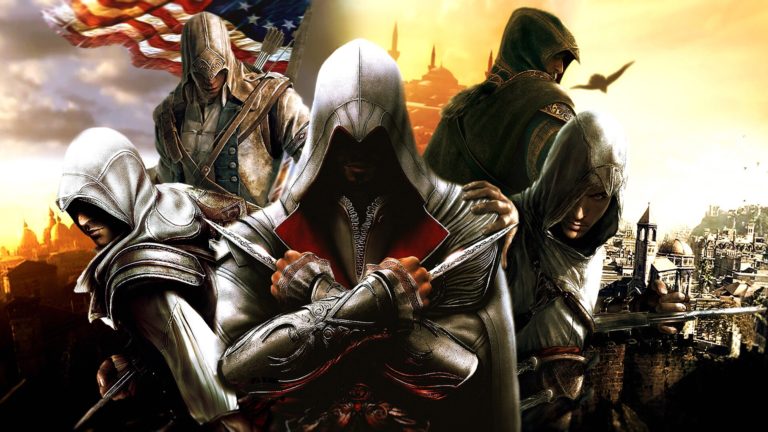There has always been a link between video games and history. For years now, we have been accustomed to popular action games based on wars from all eras of human history. Take Sid Meier’s Civilization franchise, for example and how it sought to teach some history en route to creating enjoyable gaming experiences. However, the connection between history and gaming in recent years has intensified to the point where gamers are seeing a consistent use of historical-period atmospheres and environments in modern titles.
The clearest example is the Assassin’s Creed franchise, a beautiful series of games developed and published by Ubisoft. For those who are unfamiliar with the series, it follows an age-old rivalry between “Assassins” and the “Knights Templar,” who have fought for control of the world’s power and secrets through all of the most vibrant chapters of history. By way of a fictional device (the “Animus”) that allows modern Assassins to live their ancestors’ memories (which are played out by gamers as the main bulk of the games), the games weave in and out of vibrant and fully-realized historical settings. Since the first game’s release in 2007, the ensuing installments have explored the Crusades, 15th-century Italy, the Ottoman Empire, and more recently the American Revolution and the era of piracy. And with these games benefitting so clearly from the enhanced size and visual capabilities of modern consoles, the
Assassin’s Creed franchise seems to be growing stronger while leading the way for historically-themed modern games.
While the Assassin’s Creed games through span huge ranges of history, more specified eras are also beginning to be more prominent in gaming. One that suddenly has an enormous presence is the Victorian Era, which technically only refers to the reign of England’s Queen Victoria but is often expanded to refer to the bulk of 19th-century England. Characterized by dark cobblestone streets and elements of mystery, the Victorian Era provides an effortlessly compelling backdrop for games. Developers, meanwhile, are taking full advantage of this – modern gaming is emphasizing setting and atmosphere more than ever before.
Examples abound across all different types of gaming. The most prominent is the PS4-exclusive The Order: 1886, which hasn’t even hit shelves yet. Likely inspired at least in part by the altered-history style of Assassin’s Creed, this new game will depict a strange tale of Victorian “knights” taking up the mantle of the figures of Arthurian legend and protecting 1886 London from dark forces. It is expected to be a major release for the young PS4.
Meanwhile, a simpler but more classic, character-based Victorian setting is in use on the online casino circuit, where Betfair is hosting a Sherlock Holmes mystery slot game. It was created by Playtech, who infused the standard slot machine style with playfully mischievous sounds in addition to Victorian and Holmes-ian items (letter openers, magnifying glasses, revolvers) that are always so intriguing. All in all, it’s another game improved by a rich Victorian atmosphere.
There’s also The Room (and its wonderful sequel). This is a beautiful mobile game built on mystery and atmosphere that relies on those same dark and semi-mythical/semi-gothic themes that permeate Victorian Era fiction. There are also the independent examples. The Bioshock series, which recently made the move to smart devices, takes a fantasy approach to an extremely altered history, setting games in fictional underwater cities with vaguely recognizable features of different eras in history. Call Of Duty (and games from other shooter franchises) looks to different eras of modern warfare. And sword-and-sandals epics along the lines of Ryse: Son Of Rome even look to the ancient world for action-packed and detail-rich settings. While the aforementioned franchises are not necessarily “new” trends in gaming, they do appear to be growing more prominent and widespread.
The only explanation? The aforementioned increased emphasis on atmosphere in gaming. Indie mobile game developers are seeking to enrich games via sounds and visuals while bigger developers are building gigantic, incredibly realistic worlds. As a result, there’s just more use for history in video games than there once was. So far, that’s a good thing.

